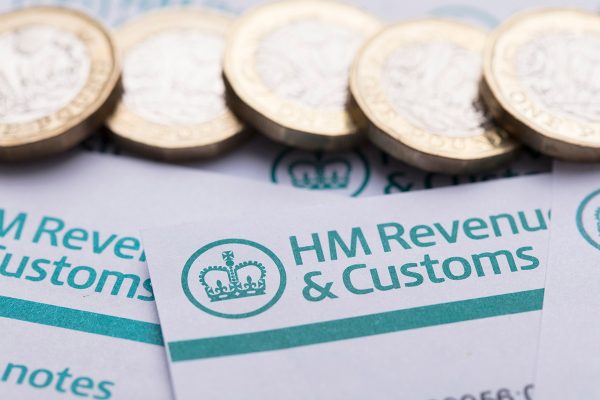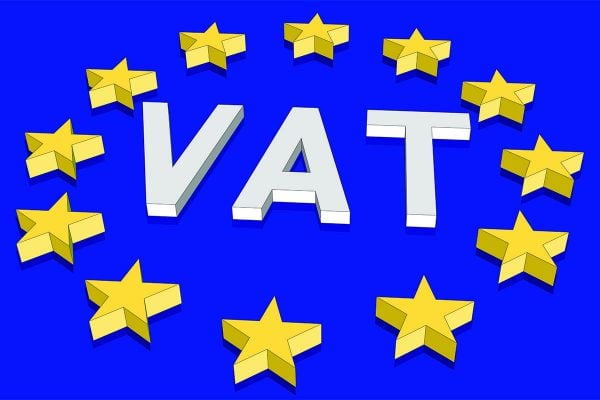 At Tamebay we know that many ecommerce SMEs are concerned with tax matters and VAT comes quite high up the list of headaches. In this guest post, Andy Spencer, Head of Consulting at Accordance looks at some of the concerns regarding VAT and the importance of registering for VAT at the right time, especially for businesses concerned with cross border trade.
At Tamebay we know that many ecommerce SMEs are concerned with tax matters and VAT comes quite high up the list of headaches. In this guest post, Andy Spencer, Head of Consulting at Accordance looks at some of the concerns regarding VAT and the importance of registering for VAT at the right time, especially for businesses concerned with cross border trade.
Andy writes: The penalties for not registering for VAT can be harsh – but if a company does nothing or ignores their responsibilities, this can result in even more problems. If there is a delay in registering, it will be necessary to liaise with local tax authorities to resolve retrospective VAT issues and this can sometimes create issues with the tax authorities that can be complicated to deal with.
Here the seven vital steps to resolving the issue:
1. Understand your obligations
There can be a number of reasons why a business has to be registered for VAT in another Member State and it is necessary to understand the VAT rules that apply to the transactions that your business is carrying out. This will ensure that your business registers for VAT at the correct time.
A common reason for a VAT registration in another Member State is distance selling, where a business in one Member State makes sales to private customers across the EU. In this case, VAT registration in the Member State of the customer is required when the Distance Sales threshold for that Member State is reached. Businesses must ensure they are aware of where their customers are, and keep track of sales on a country-by-country basis to establish when a VAT registration becomes necessary.
2. Keep calm!
If you realise that you should have registered for VAT a while ago, don’t panic – but do take prompt action. While it can seem daunting to have to have to deal with tax authorities in other countries, it does not pay to defer dealing with the issue. The exposure to penalties and interest will continue to increase if there are delays in regularising the position and the approach of the tax authorities can change if there are delays in notification. There can also be time limits for recovering VAT in other countries, so acting quickly is the best approach.
3. Make full disclosure to the tax authorities
If you deliberately avoid registering for VAT at the correct time, the tax authorities will view your business in a much harsher light than if you admit to your error as soon as you discover it. Although you may be liable to interest and penalties on the VAT not accounted for in the other Member State, these will generally be at a lower level if a full disclosure is made. In addition, penalties can potentially be negotiated if disclosure is made to the tax authorities on a voluntary basis.
4. Voluntary registration
There may be situations where it would be advantageous to backdate a VAT registration on a voluntary basis. For example, if VAT has been incurred in the past in a Member State and the only way to recover it is to be registered for VAT. It will be necessary to take into account that rules relating to retrospective VAT registrations vary across the EU; while some Member States allow retrospective registration, procedures vary and it’s important to understand how each tax authority operates.
5. Accounting for overseas VAT
If you have to retrospectively register for VAT in another Member State, the main issue is likely to be how to invoice your customer for the overseas VAT that you need to pay to the tax authorities.
If you are a distance seller, you are not going to be able to raise a further invoice to your customer as they have paid the retail price for the goods. It is likely that domestic VAT will have been charged on the sale which should be recoverable from the domestic tax authorities as the VAT was not due. Therefore, the issue will be that the business has to fund the difference between the VAT rate in their own Member State and the VAT rate in the Member State of their customer – where the VAT rate is higher in the other Member State there will be an additional cost which will have to be absorbed by the business.
If it is possible to pass the VAT charge onto the customer, it will be necessary to raise an invoice to the customer for both past sales and sales in the future. When the VAT number has been allocated, this will not be an issue but care needs to be taken for the period before the VAT number is allocated.
6. Get your invoicing correct
Rules on invoicing without a VAT number can vary considerably around the EU. For example, in the UK, you must not show VAT separately on your invoices until you receive your VAT registration number. However, it is possible to invoice for a VAT inclusive amount to ensure that the business has the ability to collect the VAT from the customer – it would be necessary to raise a VAT invoice once the VAT number is issued. This is not the case in all Member States, so it is necessary to take account of local rules.
7. Get help!
Accordance is experienced in resolving issues presented by retrospective VAT adjustments, and has successfully negotiated reduced interest, fines and penalties for clients making retrospective VAT payments, while ensuring that companies are compliant in respect of VAT obligations going forward. Where necessary, Accordance can provide advice on any retrospective issues that have arisen in the course of registering for VAT, and provide support to ensure on-going compliance with changing VAT legislation.









35 Responses
Great post and now the subject is being discussed I’m hoping that some Tamebay Contributors and readers maybe able to assist re UK VAT registration.
As things currently stand I will probably drift over the UK threshold of £77,000 during the Christmas build up. The problem however is that after Christmas my sales will in all probability drop and I will be paying VAT on an increased turnover, but lesser profit.
I anticipate paying the flat rate of VAT and there seems to be a grey area between the threshold and a turnover of approx £84,000 where there is no advantage in pushing for increased sales.
If I can burst passed £84,000 great, but if my Christmas sales increase to just around £84,000 I’m wondering if I should simply close for Christmas.
Additionally if I’m selling to a customer in a member country and I’m below the VAT threshold in that country do I still pay VAT within the UK for that sale?
Thanks for the post!
So if we sell items, mainly to one country in the EU, Germany through the internet to private customers we need to have a German VAT number?
st georges dragon re 1.1.1
You make a valid point.
I don’t like the idea of curbing sales to avoid VAT, but by the same token I don’t want to end up paying VAT because I reached the threshold and didn’t increase sales sufficiently to negate the pain of VAT.
Your personal experience or advice would be welcome.
a good accountant is essential . then
talk to the Vat people they reaslly are quite helpful,
find the best scheme to suit your business Vat is really not that painful ,
not going Vat registered really means you will always just be bumping along the bottom ducking and diving
Glenn, I was Flat Rate a few years ago. Not taking into consideration VAT back on stock in hand, IMO the upper limit of the grey area will be much higher than 84K. Take it forward a Flat Rate year at 76k turnover X 7.5% = 5.7K VAT payable. Only you know how much turnover would be required to make 5.7K profit, and then add that extra turnover to 76k to be at status quo. ie. if your biz makes 20% profit, you would need to up your FR turnover to 104.5K to stay at the same profit level as compared to not registering for FR and keeping your rolling 12 month turnover at 76k.
Another approach is to critically look at the profitability of items you are selling, it may be that some of your turnover is at low margin, some at high, ditch low margin, expand high whilst staying below vat limit
facts are that any serious business that gives a decent living tradeing online needs to be vat registered
Dan’s article and the comments by Tamebay readers have been very helpful.
st georges dragon argues that any serious business must accept VAT registration as a necessary part of business growth and (me) cautions about increasing turnover without any increase in profit.
Chris Dawson rightly warns about messing with the VAT man and david advises to review the profitability of items I’m selling and ditch low margin products.
In considering the various comments I gave thought to Dan’s article (shortened title):-
VAT registration: Timing is everything
If I need to register for VAT in order to grow my business then I should control that registration to a time of my choosing.
Rather than drifting towards registration I intend reviewing the profitability of each product offered for sale and temporarily discontinuing those lines whilst focusing on the more profitable lines. This way I will approach the registration point with a higher Net profit and once I reach the threshold and no longer need to worry about approaching it I can go back and review the lower profit items. Many of these lower profit products will still provide an acceptable return (even after registration) and should help cash flow.
Thanks for advice and comments
Morning,
Ref margin product review. That’s a tricky one – one of those things that looks obvious on paper, but in reality is quite complex!
I looked at this and did an ‘experiment’ and it became very obvious that breadth of offering was everything. So, narrowing my range to offer only more profitable items had an immediate impact & had to be quickly corrected. 🙂
I think that in craft stuff particularly, and probably in most other sectors, customers are reassured by an optimum level of choice.
Ref VAT. The accurate answer is ‘it depends!’ 😀 I see a lot of stress caused by trying to ‘stay under’ and it may be an urban legend that HMRC pay more attention to those floating just under the threshold, but I wouldn’t like the hassle of all that. 🙂
Happy trades!
Georgie
I think the decision on whether to register has to be based on the circumstances of the individual & the business concerned, after weighing up all the pros & cons.
What I do is quite labour intensive, and I can see no benefit in knocking myself out and working all hours to push past the ‘grey area’, with a significant risk that I could end up doing more work for less return.
I’d much rather stay at the level I am and take the occasional break from time to time. I’m not looking to build a giant empire, I’m simply looking to do this for the next few years until I retire and it provides a reasonable living for me.
If North thinks I don’t run a serious business, well so be it (although I know someone else who would have disagreed with that statement, had she still been around). However, his circumstances are not mine, and I do what’s best for me.
the revenue are not stupid they know to make a living from a non vat registered business it must be high profit, so want a share of that
In defence of st georges dragon I don’t think his comments about Pocket money business was intended to be patronising.
There are numerous sellers like myself who use eBay/ Amazon as a second source of income.
My current turnover is around 74K which leaves around 15k gross profit once all business experiences are taken into account. Net profit being somewhere between 20% – 25% of turnover
I couldn’t live on 15k (well not to the standard I want to) and thankfully I don’t need to rely solely on internet trade.
15k is not to be sniffed at, but if internet retailing was my sole income I would be up the creek without a paddle. For an individual or family to make a decent living from eBay/ Amazon I can understand that VAT registration and costs is just another business expense to be calculated.
My business is growing between 10% to 20% naturally which is why I asked about VAT in the first instance. At this rate of growth I will unless careful drift into the registration threshold.
I could increase my growth between 30% – 40% if I choose, which would defiantly mean VAT registration, and if I relied on eBay/ Amazon for income I would have no choice other than to go for it
This really is my problem:-
1. Do I take the bull by the horns and go for it, or
2. Accept 15k net and an easier life.
Got a bit of time to consider all options and comments
I’ve got the same problem but in a more bizarre way… I’ve given-up proper work and turned my hobby in to a full-time limited company.
I was only expecting to turnover around £60,000 (it is very high profit) but it looks like I’m going to be way over £100,000 in my first year.
I sell only second-hand collectables mostly via eBay (ie auctioned) and mostly abroad so the VAT rules are really nebulous.
Almost nothing I sell (or indeed buy) is subject to VAT but my turnover will mean I have to register for it… my accountant is currently looking through the rules!!!
I registered as a limited company for the tax advantages taking into consideration my other income. I put all my books through a Chartered accountant and quite apart from the VAT man I wouldn’t want to mess with the regular Tax man.
Yesterday an Amazon customer requested a VAT invoice for a £5 product, which I obviously couldn’t provide.
Now I don’t know if the VAT man is looking at me, and I don’t want to worry about the possibility that he is.
If VAT registration becomes necessary then I will at the front of the queue. VAT might be painful, but the penalties for not registering look a whole lot worse.
Thanks for all the comments – it’s great to see that this has really sparked discussion with people.
Stuart (re. 2): Where you sell goods through the internet to private individuals and deliver them in other EU countries, the distance selling rules apply. This means you charge UK VAT on the goods sold to other EU member states until you breach the threshold in that country. At that point you become liable to be registered for VAT in that country.
Glenn & St Georges Dragon (re. 3 & 4): Many accountants in the UK can help with your UK VAT obligations, however as you point out not all will be able to assist you with EU VAT obligations. We always recommend seeking a specialist with knowledge of local EU VAT obligations. Accordance for example specialises in cross border transactions.
Accordance
St Georges Dragon: Cross border VAT is very different to domestic VAT – each EU member state has their own rules & thresholds and often documents need to be compiled in the local language, which is something that not all companies will be able to do.
The fines and penalties for not getting it right can be costly so it’s often better to get advice before something goes wrong, and there are specialists in this area that you can consult if needs be.
Many thanks,
Accordance